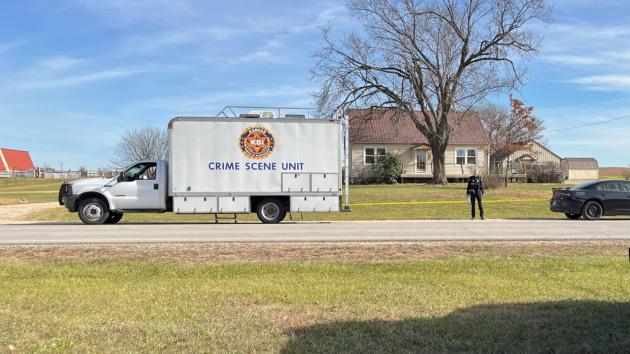Finalized guidance drops breast cancer screening age to 40 for women with average risk
Written by ABC Audio. All rights reserved. on April 30, 2024

(NEW YORK) — Breast cancer screening guidelines have been finalized by a major task force, bringing the recommended age to 40 for most women of average risk in a report published Tuesday.
The U.S. Preventive Services Task Force, a major task force consisting of expert physicians providing recommendations in the primary care setting for routine medical screenings, behavioral counseling, and preventive medications, is now recommending breast cancer screening with mammograms every other year for women with an average risk of developing breast cancer, starting at age 40. This guidance was previously drafted in May 2023, and nearly one year later, these recommendations have been finalized without major changes.
Previously, the USPSTF guidance said screening should start no later than age 50. The Task Force recommended that women in their 40s talk to their doctor about their individual risk. The age for routine screening was dropped to account for the 2% increase in breast cancer diagnosis rates each year among women in their 40s.
By lowering the screening age, the USPSTF predicts this change has the potential to avert 1.3 cases of death from breast cancer per 1000 women over a lifetime of screening. The recommendations are otherwise consistent with prior 2016 guidelines.
The updated guidelines also addressed ongoing racial disparities in breast cancer diagnosis and survival rates, particularly for Black women. According to the USPSTF, Black women are 40% more likely to die from breast cancer compared to white women. In addition to calling for more research on racial disparities and screening strategies in breast cancer, the USPSTF additionally noted this drop in screening age was included to hopefully address these disparities.
The updated recommendations will not impact insurance coverage, but by law, mammograms should be covered by insurance for all women 40 and older.
The finalized guidelines for routine screening mammograms apply to cisgender women and those assigned female at birth who are between the ages of 40 and 74 with an average risk of developing breast cancer.
The guidance also notes that almost half of all women have dense breasts, which places them at risk for breast cancer.
“In patients with dense breast tissue, addition of MRI may reduce cancer risk and false positive recalls,” said Dr. Nancy Chan, Medical Oncologist, NYU Langone Perlmutter Cancer Center, in prepared remarks.
These recommendations do not apply to women with a personal history of breast cancer, those at very high risk for breast cancer following genetic testing, or a history of high-dose radiation therapy to their chest at a young age, or those with a history of breast lesions requiring one or more biopsies. Therefore, considerations should be made to start screening at an even earlier age.
For women aged 75 or older, the USPSTF continues to recommend that they speak to their healthcare providers on whether to continue routine screening, based on their medical history and personal preferences.
“Millions of women over age 75 are in very good health and are expected to live many more years during which their risk of breast cancer remains high. The ACS does not support stopping screening for anyone with a 10+ year life expectancy irrespective of age,” said Dr. Karen Knudsen, Chief Executive Officer at the American Cancer Society (ACS), in prepared remarks.
For now, the USPSTF guidance recommends every-other-year screening, rather than annual screening. Some debate still exists about the appropriate rate of screening, with an accompanying JAMA editorial citing ACS that there is enough evidence to recommend annual screening for most women.
“The USPSTF decision today is a critical change concerning women’s health and the fight against breast cancer, acknowledging that women in their 40s will benefit from mammography screening, and sending a strong message to referring physicians and women that breast cancer screening should begin earlier than age 50,” Knudsen said in prepared remarks.
“Mammography screening is the cornerstone of our strategy to find this potentially deadly disease early, when it’s easier to treat successfully,” Knudsen continued.
Dr. Jennifer Miao is a cardiology fellow at Yale School of Medicine/Yale New Haven Hospital and a member of the ABC News Medical Unit.
Editor’s Note: This story has been updated.
Copyright © 2024, ABC Audio. All rights reserved.





